In December 2022, Advance CTE announced the relaunch of an initiative to modernize the National Career Clusters Framework. This work is led by two national partners Indigo Education Company and WestEd and supported by a National Advisory Committee, Industry Advisory Groups, and other avenues to receive input from thousands of professionals connected involved in delivering and experiencing Career Technical Education (CTE) and the Framework. 
The year is 2002:The first iPod had just been released, but we are five years away from the release of the first iPhone.
- Facebook, YouTube, and the Android operating system do not exist.
- Google News is launched
- Over half of US jobs only require limited digital skills
- The current National Career Clusters Framework was established and released to the Career Technical Education (CTE) community.
The year is 2024:
- Total music audio streams passed 4 trillion at the end of 2023.
- Facebook ad revenue total over $130 billion in 2023
- Almost two thirds of adults report getting their news from search engines such as Google
- 92% of job listings require at least one digital skill
The Advancing the Framework modernization initiative in response to growing feedback from the field about the need to align the Framework to the realities of learning and work today and in the future. Educators and industry leaders have told us in national surveys that they want the Framework to be more inclusive of emerging sectors and aligned to the new workplace, and have language that better bridges industry and education.
Our Vision for a New Framework
Imagine a Framework where a learner can take courses in agriculture, entrepreneurship, and unmanned vehicle systems in one program of study. They participate in FFA competitions for agricultural technologies, and earn both a remote pilot’s license and a professional certificate in entrepreneurship. As a result, they start their own business operating drones and digital mapping to help farmers better identify crop water needs, damage, and harvesting schedules.
This modernization is an exciting opportunity to remove silos across industry and education, state and local levels, and across Career Clusters that are keeping learners from being fully prepared for the world of work. A modernized Framework should be flexible for every state and will:
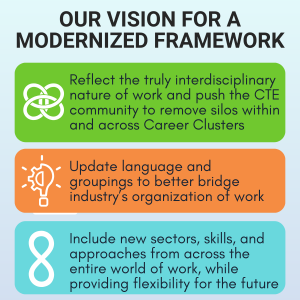
As a result, industry will gain workers with a broader skill set who are more prepared for the workplace. Learners will have more personalized paths to living wage jobs and gain skills for a variety of careers. CTE educators will be able to align and design programs that better reflect the interdisciplinary nature of work, and extend that flexibility to career exploration, work-based learning, and other experiences. And state CTE leaders will be able to build systems, professional development, and resources that are more responsive to industry needs.
The Road Ahead and Opportunities for Input
Currently, we are developing a draft Framework, grounded in labor market data and informed by education and industry leaders across the country. This draft Framework will be available for input from the public this summer. This is the first step on what will be a multi-year journey from 2025 and beyond to finalize, adopt, and implement a new Framework.
Advance CTE is considering and preparing for the impact of a modernized Framework on program of study structure, educator credentialing, state staff structure, Career Technical Student Organization (CTSO) alignment, data collection, legislative initiatives, and more. Once a state does adopt the Framework they will have ample time to implement the Framework and related supports and materials. Advance CTE will work closely with states during the implementation phase providing both general resources and materials and working on state-specific needs that align with the pace at which the state chooses to adopt the Framework.
With your help, everyone in the CTE community will have the opportunity to provide feedback on a draft Framework before it is finalized.Take one of the following steps:
Contact [email protected] for additional information or questions. |
 Kate Kreamer, Executive Director
Kate Kreamer, Executive Director




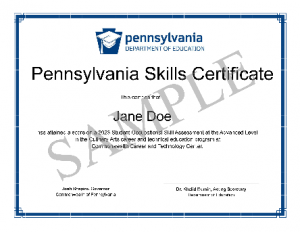 State CTE leaders utilize data as feedback to continuously improve systems, celebrate high-quality programs, and target areas for improvement. For example, the Pennsylvania Department of Education (PDE) utilizes NOCTI/NBS assessments and data for various purposes, including program evaluation, curriculum alignment, instructional improvement, professional development, and accountability. Learners meeting state-established benchmarks are eligible for the Pennsylvania Skills Certificate (PSC), recognizing individual advanced technical skill achievement.
State CTE leaders utilize data as feedback to continuously improve systems, celebrate high-quality programs, and target areas for improvement. For example, the Pennsylvania Department of Education (PDE) utilizes NOCTI/NBS assessments and data for various purposes, including program evaluation, curriculum alignment, instructional improvement, professional development, and accountability. Learners meeting state-established benchmarks are eligible for the Pennsylvania Skills Certificate (PSC), recognizing individual advanced technical skill achievement. High-quality CTE systems involve business/industry partners in verifying skills, ensuring learner assessments accurately reflect expertise. This practice not only benefits learners but also provides industry employees with an opportunity to contribute meaningfully to CTE schools and programs. As one evaluator recently summarized, “I am always willing to set time aside to work with these learners and programs, as this is the future of my industry–one that I care about and want to impact.”
High-quality CTE systems involve business/industry partners in verifying skills, ensuring learner assessments accurately reflect expertise. This practice not only benefits learners but also provides industry employees with an opportunity to contribute meaningfully to CTE schools and programs. As one evaluator recently summarized, “I am always willing to set time aside to work with these learners and programs, as this is the future of my industry–one that I care about and want to impact.”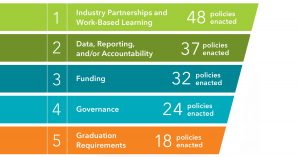

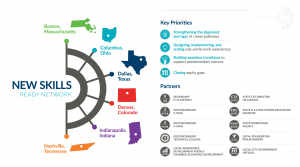
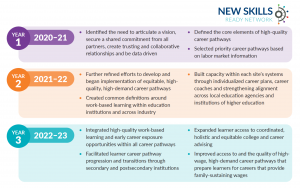
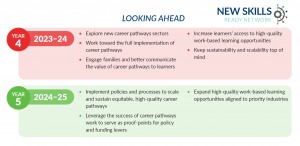
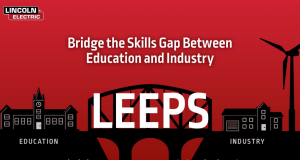 There is a welding skills gap, and that could actually mean a couple different things: It could mean there simply are not enough skilled welders to fill the welding careers available, or it could mean there is a disconnect between the skills employers are looking for and the skills applicants actually have. Either way, this gap existing is a real problem in the welding industry today—for both employers and job-seeking welders.
There is a welding skills gap, and that could actually mean a couple different things: It could mean there simply are not enough skilled welders to fill the welding careers available, or it could mean there is a disconnect between the skills employers are looking for and the skills applicants actually have. Either way, this gap existing is a real problem in the welding industry today—for both employers and job-seeking welders.  A severe lack of skilled workers and an aging workforce threaten to slow new home production, curb housing affordability, and derail the industry’s ability to stand strong amid rising recession risks to the overall economy. In fact, the construction industry needs to add 2.2 million workers over the next three years to keep up with housing demand, according to a recent
A severe lack of skilled workers and an aging workforce threaten to slow new home production, curb housing affordability, and derail the industry’s ability to stand strong amid rising recession risks to the overall economy. In fact, the construction industry needs to add 2.2 million workers over the next three years to keep up with housing demand, according to a recent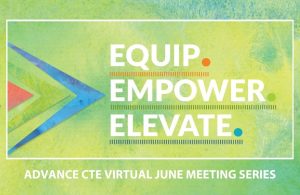 Over the course of three Wednesdays this month, we hosted our virtual June Meeting Series. Hundreds of Career Technical Education leaders from coast to coast tuned in for afternoon-long conversations focused on the themes
Over the course of three Wednesdays this month, we hosted our virtual June Meeting Series. Hundreds of Career Technical Education leaders from coast to coast tuned in for afternoon-long conversations focused on the themes  One practical tip Dennis offered: “Start your email subject line with the words ‘STORY IDEA.’” Something that simple can make him jump right to the email.
One practical tip Dennis offered: “Start your email subject line with the words ‘STORY IDEA.’” Something that simple can make him jump right to the email. 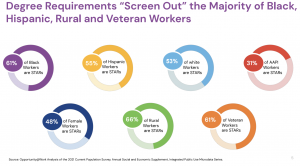
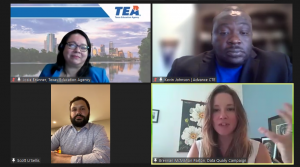
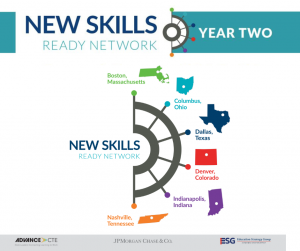 Today, Advance CTE and Education Strategy Group (ESG) released an annual report and site snapshots for year two of the
Today, Advance CTE and Education Strategy Group (ESG) released an annual report and site snapshots for year two of the 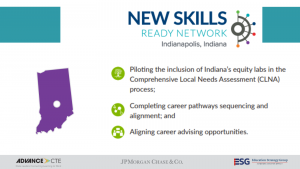
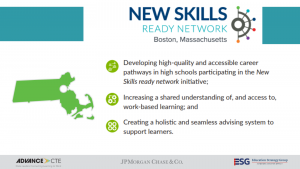 Boston, Massachusetts,
Boston, Massachusetts,